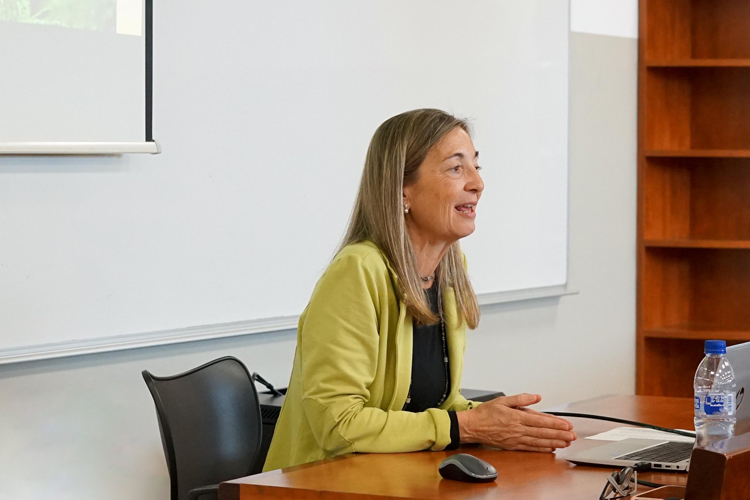Within the framework of the IQS Workshops for Secondary School Baccalaureate Teachers, IQS held two sessions aimed at secondary school teachers with the aim of providing them with tools that could be useful in teaching various subjects in the fields of chemistry, biosciences, and technology, as well as contributing to updating knowledge in these areas.

Within the framework of the IQS Workshops for Secondary School Baccalaureate Teachers, IQS held two sessions aimed at secondary school teachers with the aim of providing them with tools that could be useful in teaching various subjects in the fields of chemistry, biosciences, and technology, as well as contributing to updating knowledge in these areas. Just like last year, the sessions could be attended in person at the IQS campus, or virtually through the MS Teams platform.
The events began on 10 May with a session dedicated to the field of science. The lectures given in this session were entitled "Research in neuroscience to find solutions for rare diseases" and "The chemistry of photons: from photobiology to the creation of optical materials," presented by IQS professors Dr Jordi Duran, from the Department of Bioengineering, and Dr Roger Bresolí, from the Department of Analytical Chemistry. The session ended with the hands-on workshop "ChemCollective VLab and Physion, virtual environments for chemistry and physics experiments," presented by Dr Jordi Cuadros.
This year's workshops also included a session dedicated to supporting secondary school baccalaureate teachers in their work as research project tutors. This session was held on 29 May and consisted of two lectures and a hands-on workshop. First, Dr Núria Vallmitjana, Director of IQS Tech Transfer, gave the lecture "How does professional research work?". Then, Dr Francesc Teixidó, with the Academic Applications Management Department, gave the lecture "Generative Artificial Intelligence (such as ChatGPT): what is it and how can it change research work?". The hands-on part of the session was led by Dr Jordi Cuadros, who led the workshop “Surveys as a research tool: how they are designed, created, and administered.”
The teachers who participated in the different sessions came from both public and subsidized private educational centres throughout Catalonia. Specifically, teachers from the following schools in Barcelona participated: IES Principe de Viana, Inmaculada Concepció, Padre Damián-Sagrados Corazones, Pérez Iborra, Providencia del Corazón Jesús, and Salessians de Sarrià; and teachers from the following schools throughout the rest of Catalonia, the Balearic Islands, and Andorra participated: Colegio Sant Ermengol (Andorra la Vella), Escola Pia d’Igualada, Pineda (L'Hospitalet del Llobregat), Creanova (Sant Cugat del Vallés), IES Domènech Perramon (Arenys de Munt), IES Jaume Huguet (Valls), IES Can Vilumara (Hospitalet de Llobregat), IES La Valles del Tenes (Santa Eulàlia de Ronçana), IES La Llauna (Badalona), IES Mediterrànea (Castelldefels), IES Narcís Mitjà i Xifrà (Girona), IES Els Tres Turons (Arenys de Mar), IES Jaume Mimó (Cerdanyola del Vallès), IES Castellbisbal, IES Bendinat (Mallorca) Salessians de Sant Vicenç dels Horts, Maristes Valldemia (Mataró), Jesuïtes Lleida, Montessori-Palau (Girona), La Vall (Bellaterra), Santo Ángel (Gavà), and Jaume Viladoms (Sabadell).










